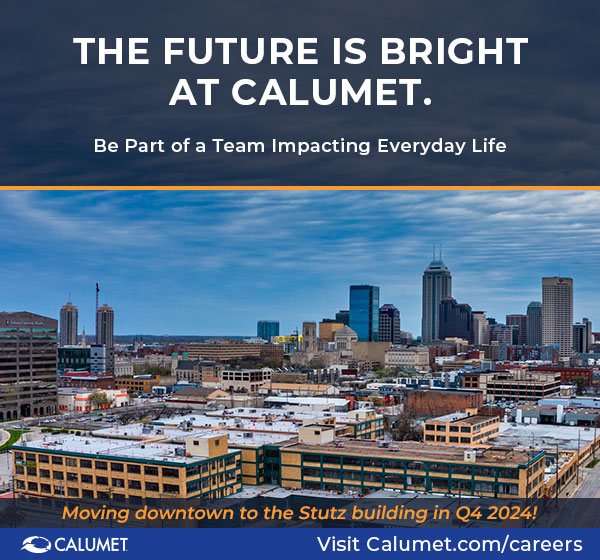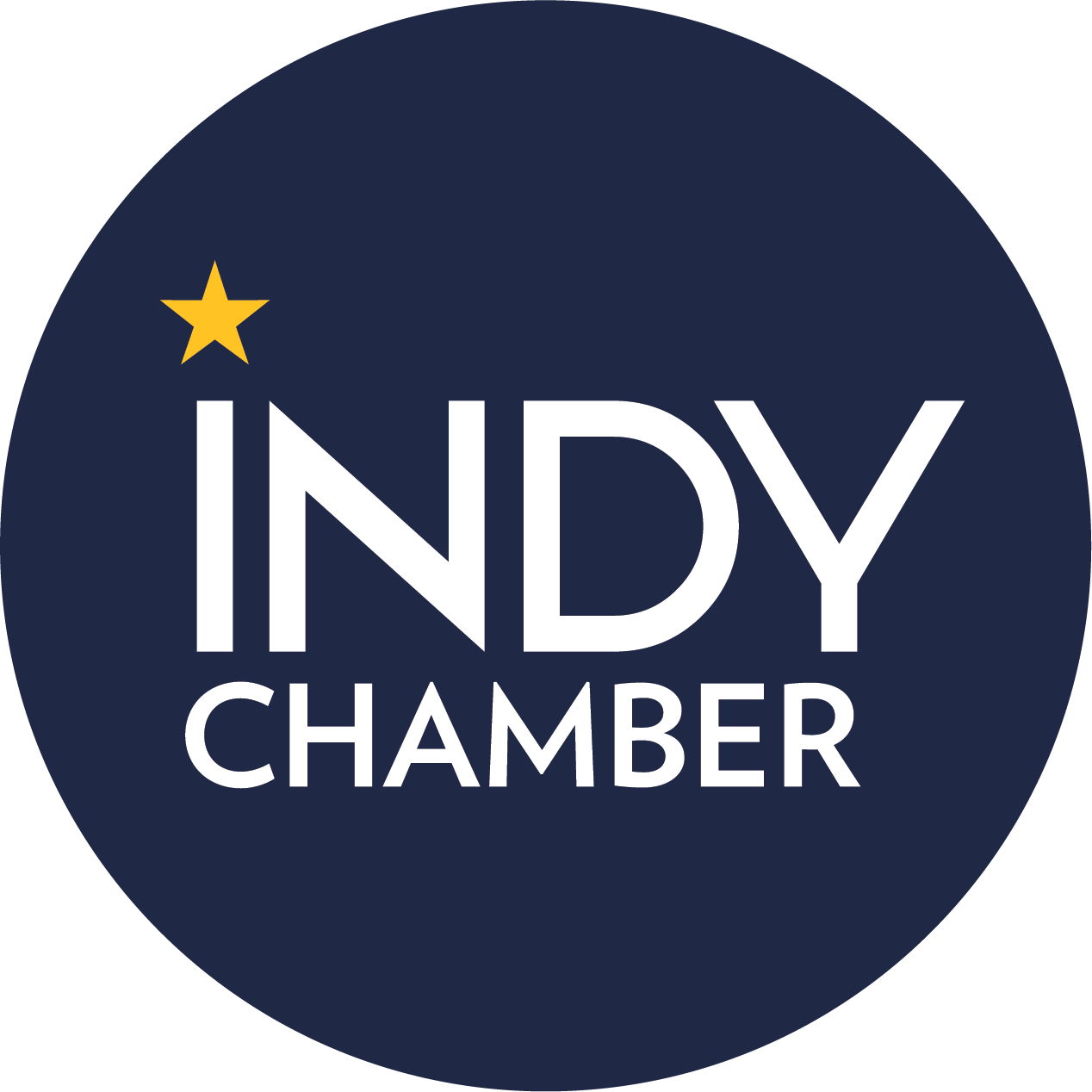Indy Chamber’s 2017 Legislative Agenda Urges “Long-Term Thinking”

Indy Chamber News Archives
INDIANAPOLIS, IN (DECEMBER 15, 2016) - The Indy Chamber released its 2017 legislative agenda today, emphasizing a long-term approach to economic growth. Top business issues for the upcoming session of the Indiana General Assembly include expanded early childhood education and a sustainable funding plan for transportation infrastructure, shared focus areas of Governor Holcomb and legislative leadership. The Chamber will also push for progress on statewide anti-discrimination protection, regional mass transit and local tax fairness.
Among these five priorities, accessible pre-K, an inclusive civil rights code and expanded transit directly impact talent – identified as a critical issue in the Indy Chamber’s ‘Accelerate Indy’ regional economic strategy. Accordingly, the group also supports a comprehensive audit and action plan to strengthen K-12 programs in science, technology, engineering and math (STEM). Post-secondary and vocational proposals include a more robust ‘Skill Enhancement Fund’ and incentivizing internships and employer co-ops for a career-ready workforce.
“In 2017, we welcome a new Governor and begin Indiana’s third century – it’s time to think big, and there’s no greater issue than talent,” said Indy Chamber President Michael Huber. “Lawmakers can help generations of Hoosiers compete for better jobs in a stronger economy this session, by taking action on pre-K, K-12 STEM education, and improving our workforce training pipeline – an issue that Speaker Bosma has also highlighted.”
Huber also stressed the need for an innovative, sustainable revenue plan to fund state and local transportation infrastructure.
“For a globally-competitive economy, Indiana needs a world-class transportation system – especially to maintain our advantages in manufacturing and logistics sector,” Huber noted. “It requires a long-term solution for infrastructure including options like indexing the gas tax or even a vehicle mileage-based system…not just another two-year funding fix.”
Indy Chamber board chair Brian Sullivan of Shiel Sexton explained that 2017 is also the time to plan ahead for the future of regional mass transit, capitalizing on progress in Marion County.
“As the Indianapolis City-County Council prepares for a final decision on expanding transit in Marion County, all of our growing communities should have the same opportunity to become part of a regional system,” Sullivan said. “We’re asking that Boone, Hendricks and Morgan counties be added to the Central Indiana transit statute, and for the legislature to restore public funding for transportation agencies across the state.”
Sullivan added that it’s taken a decade of aggressive advocacy to achieve recent legislative and electoral breakthroughs on transit. The Indy Chamber has made the same long-term commitment to anti-discrimination protection for all Hoosiers, as well as the challenge of modernizing local government finance.
“We continue to work for a statewide expansion of our civil rights laws to include sexual orientation and gender identity,” said Mark Fisher, the Indy Chamber’s Chief Policy Officer. “On the way to that goal, we’ll be defending the local human rights ordinances that continue to be adopted across the state, and lobbying aggressively to defeat any proposals that make Indiana a less welcoming and inclusive place to live, visit or do business.”
The Indy Chamber is the advocacy voice for thousands of employers representing more than a quarter-million workers, and also leads regional economic development. The Chamber works with elected officials, economic development agencies and the business community to attract new jobs and investment to Indy’s nine metro counties. To enhance this effort, its legislative agenda calls for incentives to encourage high-tech investment, innovation and entrepreneurship, and reward new development on former industrial sites.
Because incentives and investment work together to create a pro-growth business climate, the Indy Chamber also supports a more equitable regional revenue system. To allow strategic, local public investments that benefit the entire metropolitan economy, the Chamber has endorsed government reforms including a local option tax for workers who use infrastructure and public services but reside in another county.
“We’re a 21st century regional economy, but our tax system is based on county lines drawn hundreds of years ago,” Fisher said. “Every day, hundreds of thousands of workers wake up in one county and head to jobs in another – we’re simply asking for fair collection and distribution of local income taxes to reflect the modern reality of how we live, work and use public resources.”
The Indy Chamber’s local government reform agenda also includes two new issues for 2017 – the merit-based selection of Marion County judges and a non-partisan political redistricting process. The full Indy Chamber 2017 Legislative Agenda can be found here [NEED LINK]; formal position statements for top priorities are italicized below:
Early Childhood Education: Ensure children entering primary education levels are academically, socially and emotionally better prepared through the development of publicly funded, outcome-focused, Pre-K programs focused on those in most financial need as well as mandatory, fully-funded, full-day kindergarten.
Transportation Infrastructure: Advocate for a comprehensive and sustainable multi-modal transportation funding package that addresses both immediate needs and develops long term solutions, balances the needs of state and local governments and prioritizes maintenance, rehabilitation and expansion of existing transportation infrastructure.
Explore innovative funding mechanisms including, but not limited to, increasing and indexing the current state gas tax, a federal funding exchange for local projects and the creation of a voluntary pilot and further study of infrastructure funding based off a Vehicle Miles Travels (“VMT”).
Diversity: Reinforce and enhance Indiana’s brand as a welcoming and diverse state by updating the state’s current anti-discrimination law to prohibit discrimination on the basis of sexual orientation and gender identity in housing, employment and public accommodations.
Mass Transit: Further enhance the regional coordination of transit services through the addition of Boone, Hendricks and Morgan counties to the central Indiana transit statute. Restore a dedicated funding stream for the Public Mass Transportation Fund (PMTF) to account for increased participation and demand of transit agencies throughout the state.
Equity in Local Government Funding: Support a statewide strategy to equitably distribute revenue to communities from those who work, recreate, and consume in those respective localities to pay for the investments, infrastructure and services that make these activities possible. Support the creation of an incremental Local Option Income Tax that would remain in the county of employment.
###
ABOUT INDY CHAMBER
The Indy Chamber is the voice of progress and improvement for the Indianapolis region's business community. With membership of nearly 2,000 businesses in the Indianapolis region, the Indy Chamber is leading the effort to strengthen the business climate, improve the state of education, revitalize neighborhoods and enhance the region's workforce. For more information, visit IndyChamber.com.

Join Our Newsletter
Quick Connect Links


